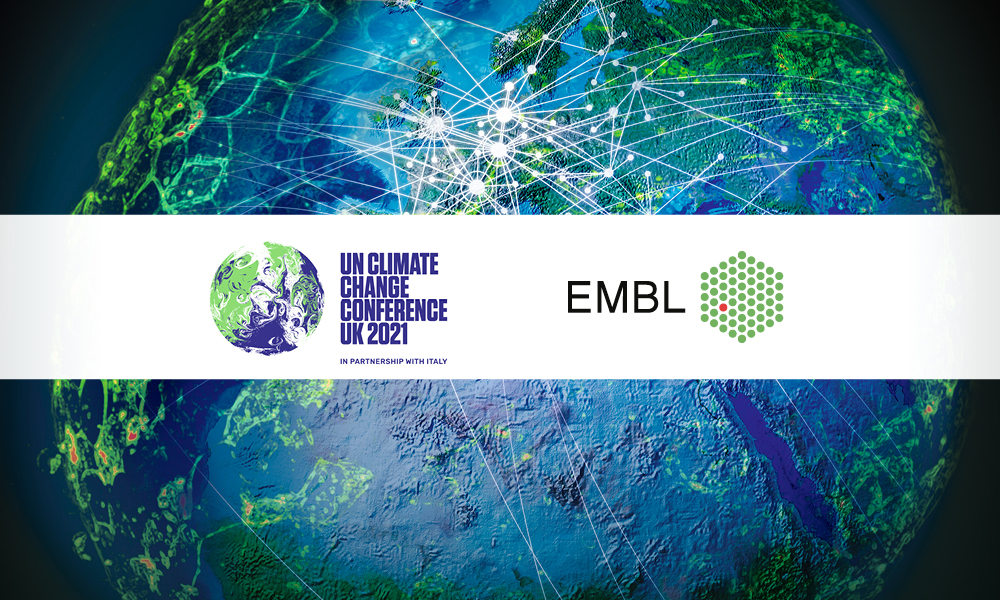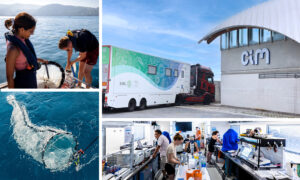Life sciences have key role in developing climate change solutions
EMBL attends COP26 to argue for strategy to involve molecular biology in the Green Recovery

The European Molecular Biology Laboratory is Europe’s only intergovernmental organisation for life science research, and believes that the life sciences must be more closely involved in global efforts to develop solutions to the interlinked problems of climate change and loss of biodiversity.
EMBL today issued the White Paper: Harnessing molecular biology to accelerate the Green Recovery which summaries the findings of an EMBL-organised international expert workshop earlier this year.
The report recommends that a dedicated strategy by governments is needed, to avoid further missed opportunities.
Including examples of potential benefits from molecular biology research, and a series of recommendations for action, the White Paper has been distributed to EMBL’s 27 member states, and is available online. EMBL researchers will also attend the United Nations’ COP26 climate change conference in Glasgow in early November – EMBL has official Observer status at the meeting.
The White Paper was written as the outcome of a workshop in July 2021 to discuss the role of life sciences – particularly molecular biology – in the Green Recovery. The discussion led to recommendations put forward to harness molecular biology’s role in the fight against environmental issues.
The workshop noted that recent advances in imaging technologies, artificial intelligence systems and data systems were enabling researchers to follow the “dynamics of living matter in real time and at multiple biological scales” from molecular components inside a cell to whole organisms and ecosystems.
Participants identified four high impact areas in which molecular biology could play a significant role: global warming; ecosystems and the loss of biodiversity; biogeochemical flows, and; manufactured pollutants. Among examples in the White Paper are reducing methane emissions from cattle, addressing pollution through molecular biology-based metabolic engineering, natural nitrogen-fixing bacteria to reduce fertiliser use, new biomaterials for construction, and enhancing the role of carbon-fixing algae.
“We believe there is a lack of awareness of … how life sciences research and research-based innovation can be harnessed in the fight against environmental damage and climate change,” the authors said in the paper.
“From seagrasses in oceans to bacteria in the animal gut, every living thing in nature is part of a complex and dynamic ecosystem, living in community with other life, in physical and chemical environments. Healthy ecosystems, both in terms of high biodiversity and balanced interrelationships among organisms, are fundamental to life on our planet and to human well-being.”
The workshop included participants from EMBL, the Italian Institute of Technology (IIT), the MRC Toxicology Unit University of Cambridge, the Spanish Council for Scientific Research, Cambridge University Botanic Garden, the University of Oslo, the Bioinnovation Institute in Copenhagen, the Institut de Biologie de l’Ecole Normale Supérieure, the University of Gothenburg, the Max Planck Institute for Terrestrial Microbiology, and the Fondation ISREC.



